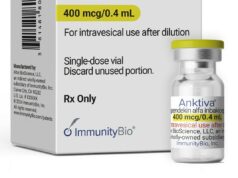
Gauss Surgical, the company behind the Triton platform that monitors surgical blood loss in real time, has raised $20 million in a Series C round.
Investors included Northwell Health, SoftBank Ventures Korea, the LS Polaris Innovation Fund and the strategic venture arms of seven U.S. health systems (UNC/REX Healthcare, OSF HealthCare, Providence Healthcare, Orlando Health, Spectrum Health, Mount Sinai Health System and Memorial Hermann Health System).
The Los Altos, California-based company will use the funding to accelerate the adoption of Triton in hospitals and to create more AI-powered applications for the operating room.
Triton relies on machine learning to estimate blood loss by analyzing images of surgical sponges and canisters taken with an iPad in the operating room. The solution received de novo approval from the FDA as well as a CE mark. Fifty hospitals have adopted Triton. Northwell Health and several of the other healthcare systems that invested in the Series C round are using the tool.
Traditionally, doctors have depended on their own visual estimates of blood loss during surgery. Triton strives to make the process more accurate. Organizations can leverage the platform to tackle preventable maternal deaths and postpartum health complications.
“Our current focus is to continue to address maternal hemorrhage and obstetric blood loss in both the OR and labor room to become the standard of care in hospitals in the U.S. and abroad,” Gauss founder and CEO Siddarth Satish said via email.
Satish explained that the impetus for starting the company came about while he was an engineering graduate student watching surgery for the first time.
“I observed that surgeons and anesthesiologists would use their instincts when determining whether or not to transfuse a patient, and if so, how much,” he said. “It was impossible to simply weigh the sponges as they were filled with irrigation and amniotic fluid, not just blood, which wildly throws off the estimates.”
He started exploring how technology could lend a hand in these situations, and Gauss was founded in 2011.
“Our goal is not only to monitor blood loss in real time — a missing vital sign in so many surgeries — but to also bring the diagnostic power of computer vision and machine learning to bear on additional high-impact unmet clinical needs in the operating room,” Satish said.
In 2016, Gauss Surgical raised $12.6 million in Series B financing.
Photo: ImagePixel, Getty Images








